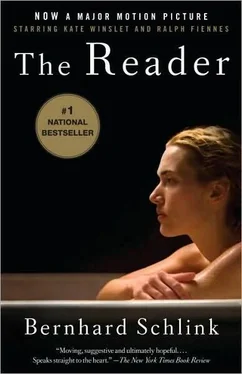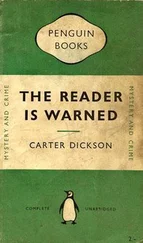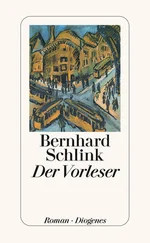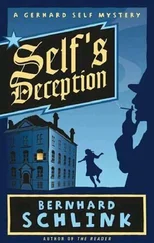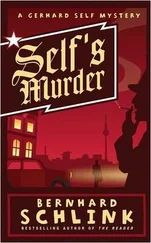Once again the report on our fight has become so detailed that I would like to report on our happiness. The fight made our relationship more intimate. I had seen her crying. The Hanna who could cry was closer to me than the Hanna who was only strong. She began to show a soft side that I had never seen before. She kept looking at my split lip, until it healed, and stroking it gently.
We made love a different way. For a long time I had abandoned myself to her and her power of possession. Then I had also learned to take possession of her. On this trip and afterwards, we no longer merely took possession of each other.
I have a poem that I wrote back them. As poetry, it’s worthless. At the time I was in love with Rilke and Benn, and I can see that I wanted to imitate them both. But I can also see how close we were at the time. Here is the poem:
When we open ourselves
you yourself to me and I myself to you,
when we submerge
you into me and I into you
when we vanish
into me you and into you I
Then
am I me
and you are you
W HILE I have no memory of the lies I told my parents about the trip with Hanna, I do remember the price I had to pay to stay alone at home the last week of vacation. I can’t recall where my parents and my older brother and sister were going. The problem was my little sister. She was supposed to go and stay with a friend’s family. But if I was going to be at home, she wanted to be at home as well. My parents didn’t want that. So I was supposed to go and stay with a friend too.
As I look back, I find it remarkable that my parents were willing to leave me, a fifteen-year-old, at home alone for a week. Had they noticed the independence that had been growing in me since I met Hanna? Or had they simply registered the fact that I had passed the class despite the months of illness and decided that I was more responsible and trustworthy than I had shown myself to be until then? Nor do I remember being called on to explain the many hours I spent at Hanna’s. My parents apparently believed that, now that I was healthy again, I wanted to be with my friends as much as possible, whether studying or just enjoying our free time. Besides, when parents have a pack of four children, their attention cannot cover everything, and tends to focus on whichever one is causing the most problems at the moment. I had caused problems for long enough; my parents were relieved that I was healthy and would be moving up into the next class.
When I asked my little sister what her price was for going to stay with her friend while I stayed home, she demanded jeans-we called them blue jeans back then, or studded pants-and a Nicki, which was a velour sweater. That made sense. Jeans were still something special at that time, they were chic, and they promised liberation from herringbone suits and big-flowered dresses. Just as I had to wear my uncle’s things, my little sister had to wear her big sister’s. But I had no money.
“Then steal them!” said my little sister with perfect equanimity.
It was astonishingly easy. I tried on various jeans, took a pair her size with me into the fitting room, and carried them out of the store against my stomach under my wide suit pants. The sweater I stole from the big main department store. My little sister and I went in one day and strolled from stand to stand in the fashion department until we found the right stand and the right sweater. Next day I marched quickly through the department, seized the sweater, hid it under my suit jacket, and was outside again. The day after that I stole a silk nightgown for Hanna, was spotted by the store detective, ran for my life, and escaped by a hair. I didn’t go back to the department store for years after that.
Since our nights together on the trip, I had longed every night to feel her next to me, to curl up against her, my stomach against her behind and my chest against her back, to rest my hand on her breasts, to reach out for her when I woke up in the night, find her, push my leg over her legs, and press my face against her shoulder. A week alone at home meant seven nights with Hanna.
One evening I invited her to the house and cooked for her. She stood in the kitchen as I put the finishing touches on the food. She stood in the open double doors between the dining room and living room as I served. She sat at the round dining table where my father usually sat. She looked around.
Her eyes explored everything-the Biedermeier furniture, the piano, the old grandfather clock, the pictures, the bookcases, the plates and cutlery on the table. When I left her alone to prepare dessert, she was not at the table when I came back. She had gone from room to room and was standing in my father’s study. I leaned quietly against the doorpost and watched her. She let her eyes drift over the bookshelves that filled the walls, as if she were reading a text. Then she went to a shelf, raised her right index finger chest high and ran it slowly along the backs of the books, moved to the next shelf, ran her finger further along, from one spine to the next, pacing off the whole room. She stopped at the window, looked out into the darkness, at the reflection of the bookshelves, and at her own.
It is one of the pictures of Hanna that has stayed with me. I have them stored away, I can project them on a mental screen and watch them, unchanged, unconsumed. There are long periods when I don’t think about them at all. But they always come back into my head, and then I sometimes have to run them repeatedly through my mental projector and watch them. One is Hanna putting on her stockings in the kitchen. Another is Hanna standing in front of the tub holding the towel in her outstretched arms. Another is Hanna riding her bike with her skirt blowing in her slipstream. Then there is the picture of Hanna in my father’s study. She’s wearing a blue-and-white striped dress, what they called a shirtwaist back then. She looks young in it. She has run her finger along the backs of the books and looked into the darkness of the window. She turns to me, quickly enough that the skirt swings out around her legs for a moment before it hangs smooth again. Her eyes are tired.
“Are these books your father has just read, or did he write them too?”
I knew there was a book on Kant and another on Hegel that my father had written, and I searched for them and showed them to her.
“Read me something from them. Please, kid?”
“I…” I didn’t want to, but didn’t like to refuse her either. I took my father’s Kant book and read her a passage on analysis and dialectics that neither of us understood. “Is that enough?”
She looked at me as though she had understood it all, or as if it didn’t matter whether anything was understandable or not. “Will you write books like that some day?”
I shook my head.
“Will you write other books?”
“I don’t know.”
“Will you write plays?”
“I don’t know, Hanna.”
She nodded. Then we ate dessert and went to her apartment. I would have liked to sleep with her in my bed, but she didn’t want to. She felt like an intruder in our house. She didn’t say it in so many words, but in the way she stood in the kitchen or in the open double doors, or walked from room to room, inspected my father’s books and sat with me at dinner.
I gave her the silk nightgown. It was aubergine-colored with narrow straps that left her shoulders and arms bare, and came down to her ankles. It shone and shimmered. Hanna was delighted; she laughed and beamed. She looked down at herself, turned around, danced a few steps, looked at herself in the mirror, checked her reflection, and danced some more. That too is a picture of Hanna that has stayed with me.
Читать дальше
